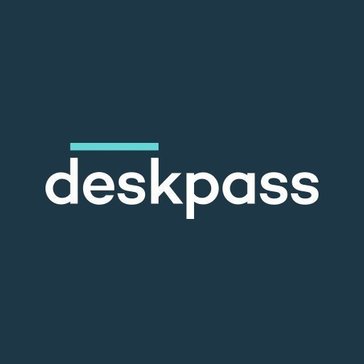- Gable is a platform that allows users to find and book coworking spaces in various locations, with additional features such as check-in reminders and the ability to see other users on the office map.
- Users like the variety of locations available, the ease of use, the ability to see other users on the office map, and the responsive customer service.
- Users experienced difficulties with the website's user interface, finding it non-intuitive and hard to navigate, and some users reported limited availability of spaces in certain areas and issues with the check-in deadline being off their timezone.
Best Flexible Workspace Management Software
Featured Flexible Workspace Management Software At A Glance
G2 takes pride in showing unbiased reviews on user satisfaction in our ratings and reports. We do not allow paid placements in any of our ratings, rankings, or reports. Learn about our scoring methodologies.
A weekly snapshot of rising stars, new launches, and what everyone's buzzing about.
- Overview
- Pros and Cons
- Seller Details
deskbird is the workplace management platform that puts employees first. With an intuitive booking system for desk and other resources, powerful analytics, visitor management and easy integrations, it
- Office Manager
- Computer Software
- Information Technology and Services
- 51% Mid-Market
- 35% Small-Business
103 Twitter followers
- Overview
- Pros and Cons
- Seller Details
OfficeRnD Flex is a customizable platform designed specifically for coworking and flexible space operators, enabling them to efficiently manage and automate various aspects of their operations. This c
- Community Manager
- Commercial Real Estate
- Hospitality
- 77% Small-Business
- 20% Mid-Market
1,744 Twitter followers
- Overview
- Pros and Cons
- Seller Details
Gable is the all-in-one workplace management platform that helps companies gather their remote & hybrid employees.. It offers four core products: On-Demand Coworking Spaces: Gable provides acce
- Information Technology and Services
- Computer Software
- 58% Mid-Market
- 32% Enterprise
- Gable is a platform that allows users to find and book coworking spaces in various locations, with additional features such as check-in reminders and the ability to see other users on the office map.
- Users like the variety of locations available, the ease of use, the ability to see other users on the office map, and the responsive customer service.
- Users experienced difficulties with the website's user interface, finding it non-intuitive and hard to navigate, and some users reported limited availability of spaces in certain areas and issues with the check-in deadline being off their timezone.
- Overview
- Pros and Cons
- Seller Details
desk.ly is the All-in-One Workplace Management Software for Hybrid Work and Smart Office Optimization desk.ly is a powerful workplace management software that enables organizations to efficiently m
- Marketing and Advertising
- Computer Software
- 78% Mid-Market
- 9% Enterprise
- Overview
- Pros and Cons
- Seller Details
Kadence is the workplace operations platform for people and spaces. Designed for modern enterprises, Kadence unifies space management, team scheduling, occupancy insights, and AI-powered coordination
- Computer Software
- Non-Profit Organization Management
- 53% Mid-Market
- 42% Small-Business
1,527 Twitter followers
- Overview
- Pros and Cons
- Seller Details
Scale your business with enterprise-grade workspace solutions. Croissant provides on-demand access to a global network of 500+ premium, vetted coworking spaces and meeting rooms through a single, intu
- 67% Small-Business
- 33% Mid-Market
- Overview
- Pros and Cons
- Seller Details
Yardi Kube: One platform to power your entire coworking space << What is Yardi Kube? >> Yardi Kube is the coworking industry's most comprehensive management software, specifically
- 80% Small-Business
- 20% Mid-Market
11,626 Twitter followers
- Overview
- Seller Details
Awaio is a workplace management platform designed to unify and simplify how organizations operate, manage, and optimize their work environments. As a type of workplace experience and facilities manage
- 100% Small-Business
- Overview
- Seller Details
Workspace for Any Team, Anywhere. Get personalized, end-to-end flexible workspaces solutions for your entire company with Enterprise level support.
- Overview
- Seller Details
The enterprise grade, on-demand workspace platform. Access offices in minutes instead of months, while gaining granular insights into usage. Take full control of workspace utilization and eliminate ov
- Overview
- Seller Details
Access 100+ coworking spaces in Chicago, NYC, LA, and Denver for one flat rate. No multi-month commitments, cancel anytime.
- Overview
- Seller Details
Desky is a software-as-a-service (SaaS) platform that helps companies and professionals access coworking spaces in a flexible and efficient way. It enables organizations to manage coworking budgets, s
- Overview
- Seller Details
Hubble is a flexible workspace platform. We help businesses give their teams great places to work – whether that's a longer-term office, or on-demand access to a network of thousands of spaces to work
- Overview
- Seller Details
Empower your teams to easily book spaces around the world for themselves without sacrificing sustainability, safety or control.
- Overview
- Seller Details
LiquidSpace Marketplace is a Work From Anywhere Management platform for corporate real estate and workplace professionals. With LiquidSpace Marketplace you can provide employees with easy access to on










